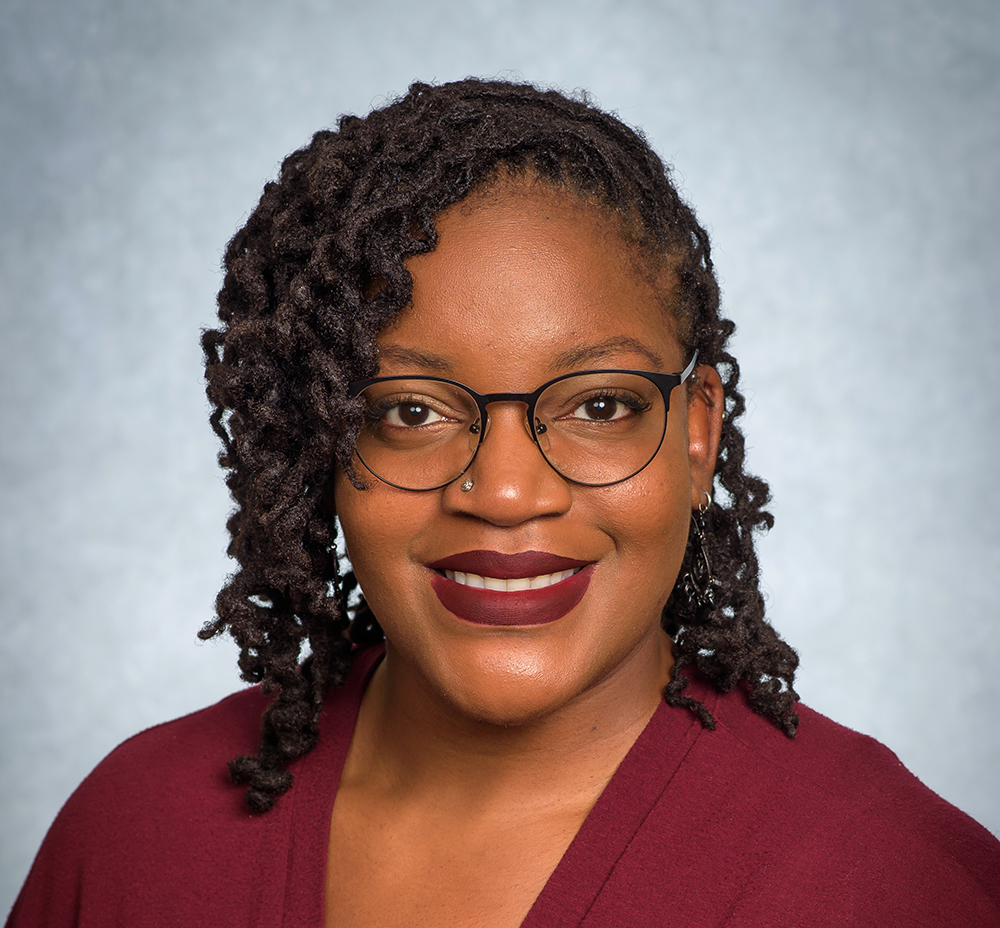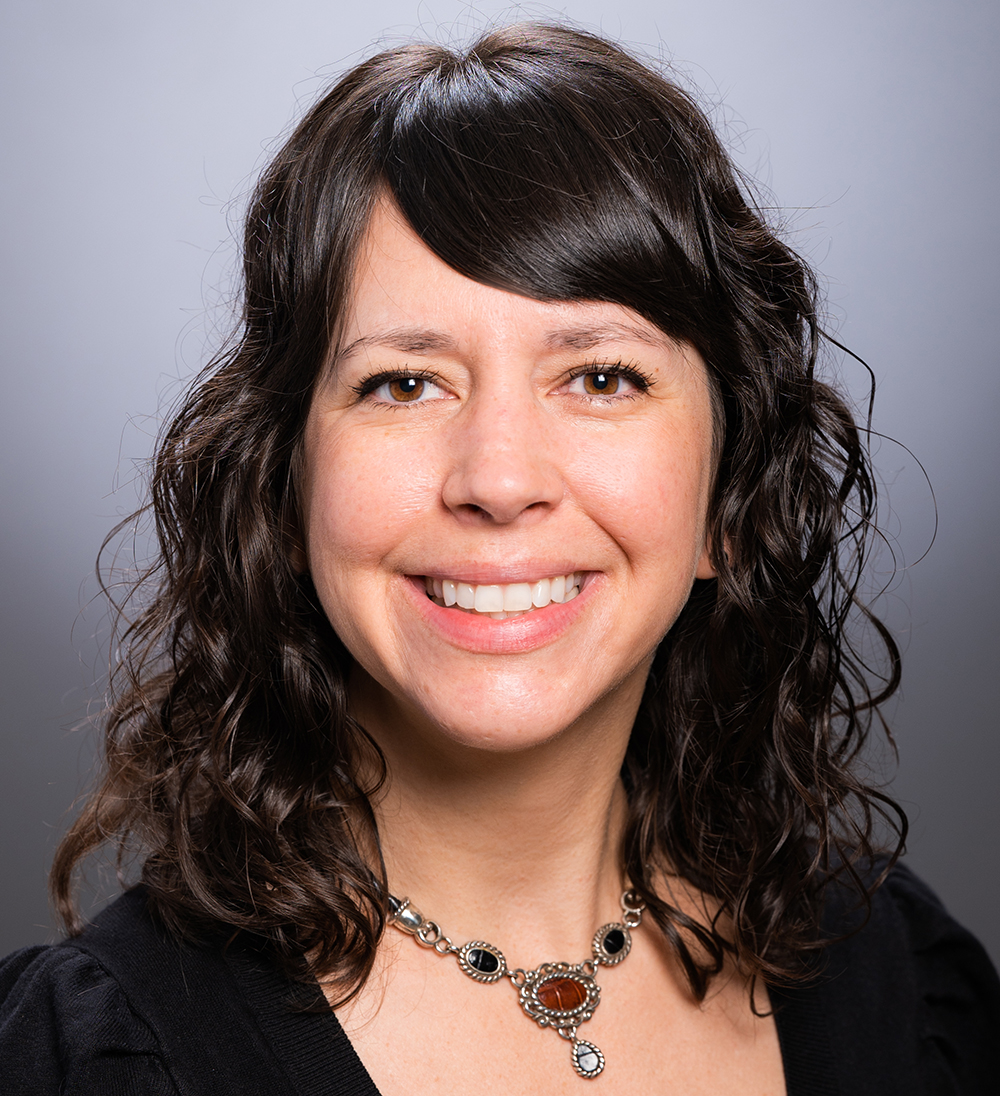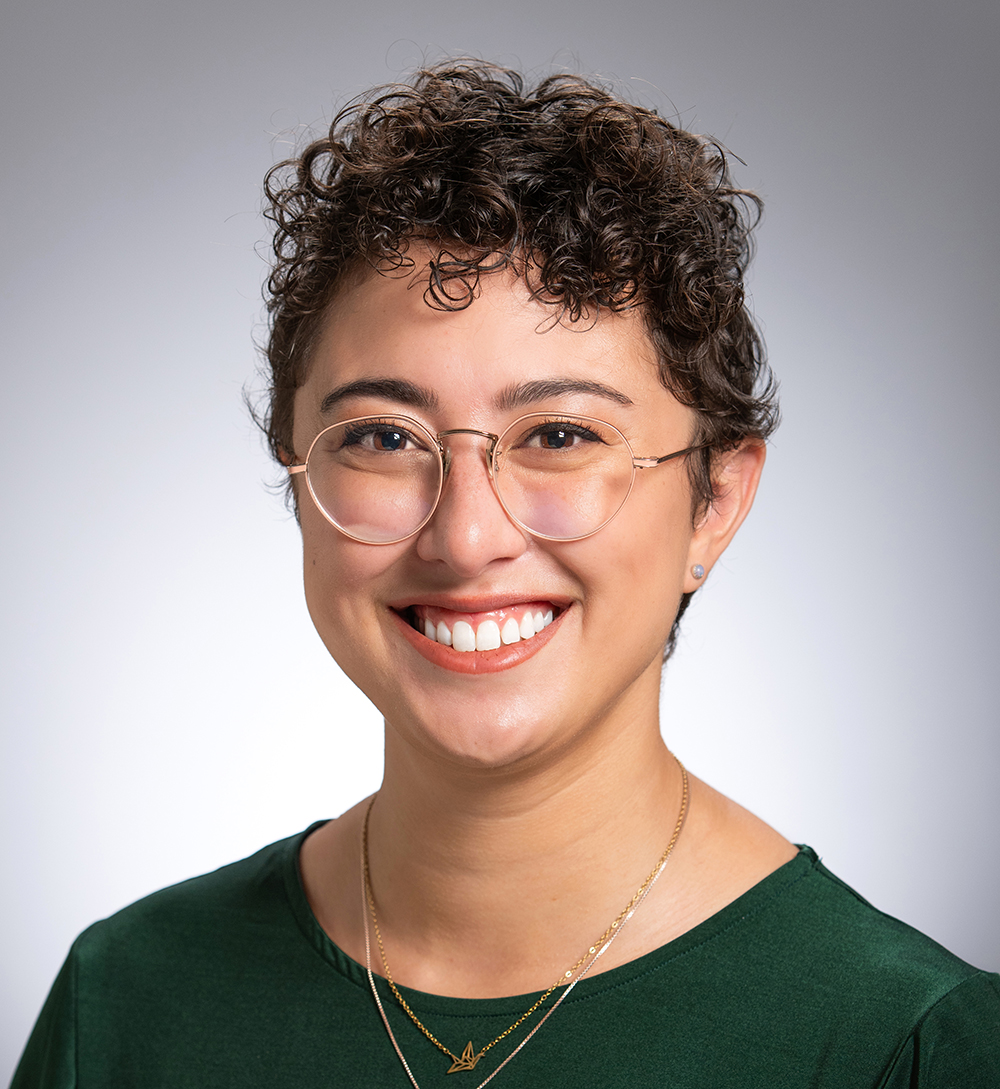Lillian Brady, Ph.D., Elizabeth Lucas, Ph.D., Michael Alec Owens, Ph.D., and Kirsten Schoonover, Ph.D., all share something. They each received their postgraduate degrees at UAB, went to another prestigious institution to complete their postdoctoral research, and then returned to UAB for full-time positions. Today, they work in the UAB Department of Psychiatry. Brady, Lucas, Owens, and Schoonover share their stories about the road back to UAB.
Lillian Brady, Ph.D. Lillian Brady, Ph.D.
Lillian Brady, Ph.D.
Lillian Brady, Ph.D., is an assistant professor in the Department of Psychiatry and Behavioral Neurobiology. She received her Ph.D. in cell molecular and developmental biology with a concentration in neurobiology at UAB. Brady then went to Vanderbilt University to complete her postdoctoral research. After completing her program and interviewing at other institutions, Brady wanted to return to UAB.
“Honestly, the environment at UAB is unmatched. Just from speaking with other people, the way UAB labs are collaborative and everyone’s friendly, you're not going to get that in a lot of places,” said Brady. “UAB is one of the best institutions in the country, especially the South, and I wanted to keep doing good work with good people who I know are going to support me.”
Brady accepted an assistant professor position in the Department of Psychiatry and Behavioral Neurology. Her research investigates the differences between males and females in response to drugs of abuse, specifically how dopamine release activity is affected. She is also examining the relationship between hormones and this process. Most recently, Brady has been exploring how estrogen affects nicotine receptors in the brain.
Mentoring is Brady’s favorite part of her new role. She believes that mentorship should be individual. She hopes to help students who were not introduced to neuroscience during their undergraduate career understand that they can conquer it. Brady herself didn’t have a background in neuroscience. She fell in love with the research and hopes to foster that feeling in new students.
“My first student is a post-baccalaureate UAB PREP student, and I literally see myself in her,” beamed Brady. “We’re both from Mississippi and went to the same undergrad at Alcorn State University. I'm just so happy that I get to mentor her.”
Brady wants to one day further that passion by directing a graduate program for biomedical research. She wants to make the graduate experience better.
“I know a lot of people who wanted to leave academia once they finished their Ph.D.,” said Brady. “Although it was challenging, I had a great time at UAB as a graduate student, and I would love to help continue the supportive UAB tradition.”
Elizabeth Lucas, Ph.D.  Elizabeth Lucas, Ph.D.
Elizabeth Lucas, Ph.D.
Elizabeth Lucas, Ph.D., is an assistant professor in the Department of Psychiatry and Behavioral Neurobiology. She received her Bachelor of Science in Psychology from UAB and decided to stay for the UAB Behavioral Neuroscience graduate program. After completing the program, Lucas moved to the Icon School of Medicine at Mount Sinai.
Lucas’s story differs from others in this article because she did not have a straight path back to UAB. After her postdoctoral research, she accepted a North Carolina State University faculty position. Lucas returned to UAB in July 2022.
“My primary driver for returning was largely family-based,” said Lucas. “I'm from rural Alabama, and my immediate family is within a three-hour drive from here. I think the pandemic made us all realize that time is a little more finite than we thought it could be, and I felt very far away from my family. I just felt like if I could move back home, then I should.”
Another factor that contributed to Lucas’ return to UAB was its collaborative atmosphere.
“UAB is an amazing research powerhouse. I can run into people in the hallway to talk about ideas, and I didn’t have that anywhere else. It just makes the day-to-day much more rewarding,” Lucas remarked. “It stimulates new ideas you wouldn't otherwise have because you don't think about what the person down the hall is doing and how it might interact with what you're doing.”
Lucas started her first lab examining how emotion-related memories are stored and retrieved in the brain and how those memory processes differed between males and females. Intrigued by the fact that women are more likely to be diagnosed with anxiety disorders than men, she decided to research why. Anxiety disorders such as post-traumatic stress disorder are all characterized by dysregulation of emotional processing. From her research, Lucas found that sex differences were dictated by regulation across the female reproductive cycle.
Today, Lucas’s research is focused on ovarian hormones in mice. More specifically, how behavioral processes are regulated across the ovarian hormone cycle and what changes in the brain are guiding these changes in behavioral processes.
“At NC State, there was no opportunity to translate findings to human populations. A lot of what we do in my lab, even though we're looking at mouse models, are very similar to what happens in humans,” said Lucas. “Being at UAB in a clinical department, surrounded by psychiatrists who deal with patients who have these disorders, is a big benefit. One day, I want to move some of these findings into human populations.”
What is most important to Lucas is continuing her research.
“Even though what I’m saying may sound simple, we know very little about what I study. We know some little pieces of the jigsaw puzzle, but I would say that if we have a 1,000-piece jigsaw puzzle, we haven't even put in the borders yet. We just have some random pieces in the middle that aren't connected to anything.”
Michael Alec Owens, Ph.D.  Michael Alec Owens, Ph.D.
Michael Alec Owens, Ph.D.
Michael Alec Owens, Ph.D., is an assistant professor in the Department of Psychiatry and Neurobiology. He received his Ph.D. in Clinical Psychology from the UAB Department of Psychology. His dissertation examined bio-behavioral factors that affect chronic pain in people with HIV. He then spent three years at Johns Hopkins University, completing his postdoctoral research in the Department of Psychiatry.
For most of his graduate career, Owens looked at different factors that affect chronic pain in populations that commonly experience health disparities. His dissertation focused on how social stigma and discrimination factored into physiological experiences of chronic pain. While at Johns Hopkins, Owens expanded that knowledge base by adding a sleep understanding through a sleep and pain lab.
Owens’s work has primarily examined sleep as a behavioral aspect that affects pain. Right now, he is working on a project that looks at how different factors, including sleep, impact pain in populations that suffer from HIV.
Owens’s research focuses on high-risk populations, and UAB’s strong ties to the community heavily contributed to his return.
“UAB is so ingrained in the community, which I may have taken for granted as a graduate student. When I was at Hopkins, we would have guerrilla marketing campaign strategies on how to recruit people from the community,” Owens reflected. “Here, everyone knows UAB, and everyone comes to UAB. We have people living down the street and people traveling from Mobile, Mississippi, and Southern Tennessee. You have people coming here from all over the place, and that's just invaluable.”
Owens also wants to foster that sense of community within his lab through mentorship.
“When I was a student at UAB, I oversaw people in my lab who were one or two years below me, and I got advice and help from people who were one or two years above me. Those are relationships that I still maintain,” said Owens. “So much was given to me by UAB, and I want to be the next part of that—to give back to the next group.”
In addition to his research, Owens recently received his license to practice clinically. He plans to work with diverse, high-risk populations to help them manage their pain and sleep.
“The people I want to work with are often frustrated with their pain management because chronic pain is often idiopathic—it doesn't have any known cause like chronic back pain, and it just won't go away,” stated Owens. “I want to be a part of helping these people through a combination of behavioral factors.
Kirsten Schoonover, Ph.D.  Kirsten Schoonover, Ph.D.
Kirsten Schoonover, Ph.D.
Kirsten Schoonover, Ph.D., is an assistant professor in the Department of Psychiatry and Behavioral Neurobiology. She received her Ph.D. from UAB, researching schizophrenia in postmortem tissue. She continued her postmortem schizophrenia research during her postdoc at the University of Pittsburg.
“Schizophrenia presents so many abnormalities across various regions of the brain. You could place all the brain regions on a wall, spin around 18 times, throw a dart, and still hit a region that has some kind of pathology,” said Schoonover. “I always found it fascinating how you could explore so many different aspects of the same disorder, and I never looked back.”
Schoonover largely credits her return to UAB to the sense of home she felt as a graduate student.
“When I was here as a graduate student, it felt like the perfect balance for me of being able to be productive, successful, and creative, but also really happy in the environment that I was in,” said Schoonover, “Now, as a faculty member, UAB has that Southern culture kind of thing where I could reach out to any scientist and say, ‘Hey, I'm doing this new, exciting thing, do you maybe want to help me?’ and their response is, ‘I've never met you before, but let’s do it!’”
That sense of comfort and belonging also relates to the world she sees around her.
“I grew up in a rural, predominantly white area. My family and I were the only people of color in that community,” said Schoonover. “Coming to UAB, the experience of entering a room and seeing a wonderfully diverse group of people, particularly in high-level university classes, was incredibly welcoming and encouraging.”
Schoonover’s current research primarily focuses on synaptic dysfunction and how it relates to cognition in schizophrenia. Similarly, Schoonover is interested in the effects of trace metals and how abnormal metal transport is involved in that synaptic structure and activity.
“I believe UAB excels at actively trying to be better, in my experience, much more so than other places. Nowhere is perfect, but this institution puts a lot more effort into walking the walk than others that just talk the talk.”
Schoonover is also the associate director of the Alabama Brain Collection. She is working to establish relationships with multiple autopsy-based organizations to diversify brain donation samples. In the past, the collection relied heavily on family donations and word of mouth, which resulted in donations primarily from populations of older white men. Schoonover’s goal is to develop a brain collection representative of the whole population so that research more accurately reflects the people most affected by severe mental illnesses.
Schoonover's long-term goal is to keep researching, learning, and exploring.
“I like trying to understand the pathology that underlies these conditions,” said Schoonover. “Someone once said, ‘The brain is the last frontier in science.’ For me, it’s fun and interesting to be a part of the Wild West of science when it comes to researching and investigating the brain.”